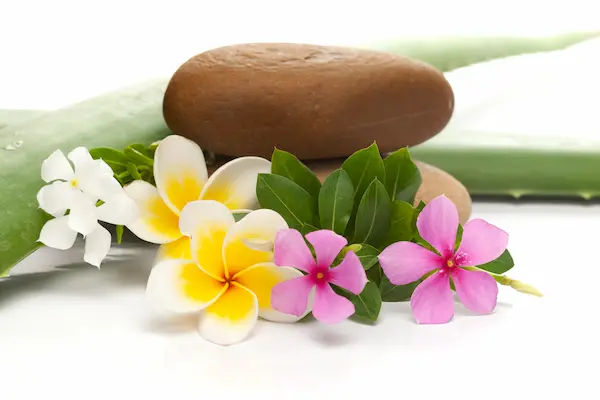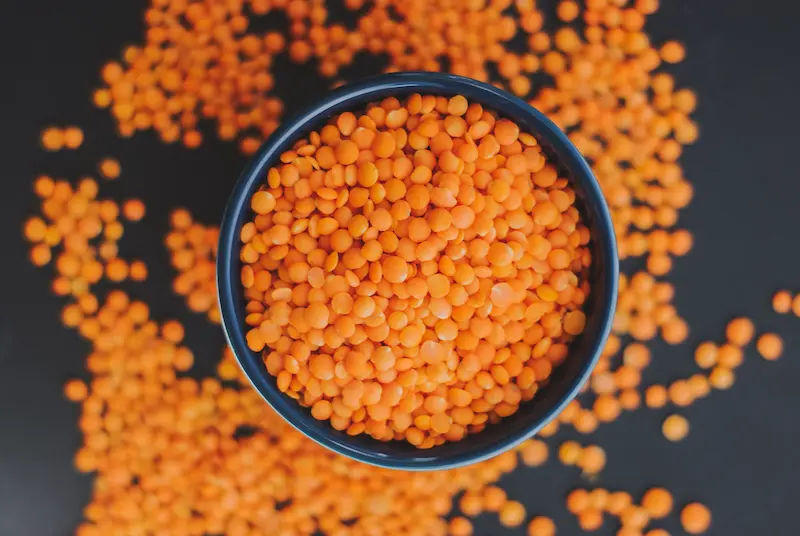Clove (Laung) Ayurvedic Uses, Benefits, and Side Effects
Discover clove benefits,launch uses, and safety tips. Learn how this ayurvedic spice supports oral health, digestion, and more—plus side effects and precautions.

Written by Dr. Md Yusuf Shareef
Reviewed by Dr. Dhankecha Mayank Dineshbhai MBBS
Last updated on 13th Jan, 2026
%20Ayurvedic%20Uses,%20Benefits,%20and%20Side%20Effects.webp?tr=q-80,f-webp,w-350,dpr-2,c-at_max 700w)
Introduction
Clove, known as laung in many South Asian homes, is a beloved ayurvedic spice with a long history in cooking and traditional wellness. From soothing a mild toothache to flavoring chai, people often reach for cloves for their aroma and potential clove benefits. In this guide, you’ll learn what science and Ayurveda say about laung uses, how to use it safely, and when to be cautious.
What is clove (laung)?
• Botanical name: Syzygium aromaticum
• What it is: The dried flower bud of a tropical evergreen tree
• Key component: Eugenol, a natural compound that contributes to clove’s distinctive fragrance and many of its biological properties
Clove benefits: What science and Ayurveda say
Clove is widely used in Ayurveda and many traditional systems for digestion, respiratory comfort, and oral care. Modern research has also explored several potential benefits. Here’s a balanced look:
1) Oral and dental support
• Traditional use: Clove has long been used to ease temporary tooth discomfort.
• What research suggests: Eugenol, found in clove oil, has local anesthetic and antiseptic properties and is used by dental professionals in specific preparations. A drop of properly diluted clove oil may provide short-term relief for minor tooth discomfort, but it is not a substitute for dental care. See a dentist for persistent pain, swelling, or signs of infection.
2) Antimicrobial and antioxidant properties
• Lab findings: In test-tube and laboratory studies, clove extracts and eugenol show antimicrobial activity against certain bacteria and fungi, and cloves are rich in antioxidant compounds. This does not mean cloves can treat infections in people, but it supports their traditional use in oral hygiene and food preservation.
• Everyday takeaway: Using clove as a culinary spice or in a mild mouth rinse may support oral freshness and general food flavoring, but it should not replace medical treatment.
3) Digestive comfort (traditional use)
• Traditional perspective: In Ayurveda, laung is considered warming and carminative—used to support agni (digestive fire), reduce gas, and freshen breath.
• Modern lens: Some people find a mild clove tea after meals soothing. Clinical evidence is limited; if you have ongoing digestive issues, seek medical advice.
4) Respiratory comfort (traditional use)
• Traditional perspective: Clove is used in spice blends and teas during seasonal coughs and colds.
• Practical note: A warm clove-infused beverage may feel comforting, but it is not a proven treatment for respiratory illnesses. Follow evidence-based care if you’re unwell.
Important context
• Many studies on clove are preclinical (test-tube or animal studies). Human research is more limited.
• Culinary use is generally considered safe for most people. Medicinal or concentrated use (especially oils) requires caution.
Consult Top Specialists
Laung uses in daily life: Simple, safe ideas
Cloves are versatile. Try these everyday uses while keeping safety in mind:
In the kitchen (most reliable and safest way)
• Whole cloves in rice, lentils, curries, soups, stews, or pickles
• Ground clove in spice blends (garam masala), baked goods, and chai
Tip: A little goes a long way—clove is strong and pungent
Comforting home uses
• Clove tea or infused water: Steep 1–2 whole cloves in hot water for 5–10 minutes. Sip warm. Avoid it if you have mouth sores or sensitivity.
• Mouth rinse: Make a mild clove tea, cool it, and use it as a temporary breath freshener. Do not swallow large amounts or use it as a substitute for dental care.
Topical clove oil (for short-term, localized use only)
• Always dilute: Mix 1 drop clove essential oil in at least 1 teaspoon of a carrier oil (like coconut or olive oil). Apply only to intact skin, not open wounds.
• Dental discomfort: Dab a very small amount of the diluted oil on the outside of the cheek near the sore area as a temporary measure—then see a dentist promptly.
• Never give clove oil to children or swallow essential oils. Undiluted clove oil can burn or irritate tissues.
How Ayurveda views this ayurvedic spice
• In traditional Ayurvedic texts, clove (lavanga) is described as:
• Warming and stimulating to digestion
• Helpful for reducing excess Kapha (phlegm) and supporting Vata balance in small amounts
• Used in spice blends for meals, not as a replacement for medical care
Note: Ayurveda uses its own framework (doshas, agni). These concepts guide traditional practice and culinary choices but are not medical diagnoses.
Safety first: Side effects and precautions
While culinary use is generally safe for most adults, clove and clove oil can cause side effects—especially when used in concentrated forms.
Possible side effects
• Mouth and skin irritation or burns (especially from undiluted oil)
• Allergic reactions in sensitive individuals (rash, itching, swelling)
• Nausea or stomach upset if taken in excess
• Increased bleeding tendency: Eugenol may slow blood clotting; high or concentrated intake can raise bleeding risk, particularly if you take anticoagulants or antiplatelets
• Liver toxicity with ingestion of clove oil: Swallowing essential oils can be dangerous and has been linked to serious harm, especially in children
Who should be extra cautious?
• People on blood thinners or with bleeding disorders: Talk to your clinician before using clove supplements or clove oil. Avoid high or concentrated doses.
• Before surgery or dental procedures: Avoid high-dose clove products and clove oil for at least 1–2 weeks before procedures unless your clinician advises otherwise.
• Children: Do not give clove oil to children. Keep essential oils locked away.
• Pregnancy and breastfeeding: Culinary amounts of clove in food are generally considered fine. Avoid medicinal doses and essential oil ingestion; safety data are limited.
• Sensitive mouth or GI conditions: Avoid clove oil if you have mouth ulcers, reflux flares, or gastritis—it may worsen irritation.
Smart, practical tips for using clove safely
• Prefer the spice over the oil: Culinary use is the safest way to enjoy potential clove benefits.
• If using essential oil topically: Always dilute heavily, use sparingly, and avoid mucous membranes (mouth, nose), eyes, and broken skin.
• For tooth pain: Use diluted oil only as a short stopgap. Book a dental appointment to treat the cause.
• Store safely: Keep clove oil away from children and pets.
• Start small: If you’re new to spices or have sensitivities, introduce cloves gradually.
How much is okay?
There is no universal “dose” for cloves as a food. In recipes, clove is typically used in pinches or a few whole buds.
For any supplement or concentrated preparation, speak with a qualified healthcare professional who knows your medical history and medications.
When to seek medical care?
• Severe toothache, swelling, fever, bad taste, or facial pain: See a dentist urgently—these may be signs of infection.
• Bleeding, easy bruising, or unusual tiredness while using clove products: Contact your clinician.
• Signs of an allergic reaction (hives, trouble breathing, swelling of face/lips/tongue): Call emergency services.
Quick recipes and routines featuring this ayurvedic spice
• Simple spiced tea: Simmer water with 2 cloves, a small piece of cinnamon, and a slice of ginger for 5 minutes. Add milk or lemon and honey if desired.
• Aromatic rice: Add 2–4 whole cloves, 1 bay leaf, and 2 cardamom pods to rice while cooking.
• Breath refresh: Sip a mild, cooled clove infusion after meals. Avoid if you have mouth irritation.
The bottom line
Clove (laung) is a flavorful ayurvedic spice that brings warmth to meals and has a well-known role in oral comfort and traditional wellness. Culinary use is the safest way to enjoy it. Clove oil and supplements require care: they can irritate tissues, increase bleeding risk, and are unsafe to ingest. If you’re considering clove for a health concern—or you take medicines like blood thinners—talk with your healthcare provider.
Consult Top Specialists
Consult Top Specialists

Dr. Anjan Das
Ayurveda Practitioner
8 Years • Ayurvedacharya ( B.A.M.S )
Dumdum
Vedhive Ayurveda Clinic, Dumdum

Dr. Rik Sadhukhan
Ayurveda Practitioner
8 Years • BAMS
Kolkata
Vedhive Ayurveda, Ballygunge, Kolkata

Dr. Shiv Prakash Singh
Ayurveda Practitioner
19 Years • BAMS
Kolkata
Vedhive Ayurveda College Street, Kolkata

Dr. Pepsy Jose
Panchakarma Practitioner
14 Years • BAMS, MD Ayurveda (Panchakarma)
Bengaluru
AYURRHYTHM HOLISTIC CLINIC AND PANCHAKARMA THERAPY, Bengaluru
Consult Top Specialists

Dr. Anjan Das
Ayurveda Practitioner
8 Years • Ayurvedacharya ( B.A.M.S )
Dumdum
Vedhive Ayurveda Clinic, Dumdum

Dr. Rik Sadhukhan
Ayurveda Practitioner
8 Years • BAMS
Kolkata
Vedhive Ayurveda, Ballygunge, Kolkata

Dr. Shiv Prakash Singh
Ayurveda Practitioner
19 Years • BAMS
Kolkata
Vedhive Ayurveda College Street, Kolkata

Dr. Pepsy Jose
Panchakarma Practitioner
14 Years • BAMS, MD Ayurveda (Panchakarma)
Bengaluru
AYURRHYTHM HOLISTIC CLINIC AND PANCHAKARMA THERAPY, Bengaluru
More articles from General Medical Consultation
Frequently Asked Questions
1) Can cloves really help a toothache?
It may offer brief, mild relief because eugenol has numbing and antiseptic properties. However, this is temporary and not a cure. See a dentist to address the cause of pain.
2) Is it safe to chew cloves daily?
Chewing 1–2 whole cloves occasionally is generally fine for most adults, but frequent or heavy use can irritate the mouth or stomach. If you notice irritation, stop and switch to culinary uses within meals.
3) Can I use clove oil directly on my gums or teeth?
Do not use undiluted clove oil—it can burn tissues. If you choose to use it, dilute 1 drop in at least 1 teaspoon of carrier oil and apply outside the cheek near the sore area. Book a dental visit as soon as possible.
4) Do cloves interact with blood thinners?
Yes, clove and eugenol may slow blood clotting. If you take anticoagulants or antiplatelet medicines, avoid high-dose clove products and clove oil, and consult your clinician.
5) Are cloves safe in pregnancy?
Clove used in normal food amounts is generally considered acceptable. Avoid medicinal doses or ingesting essential oil during pregnancy or breastfeeding due to limited safety data.




_1.webp)